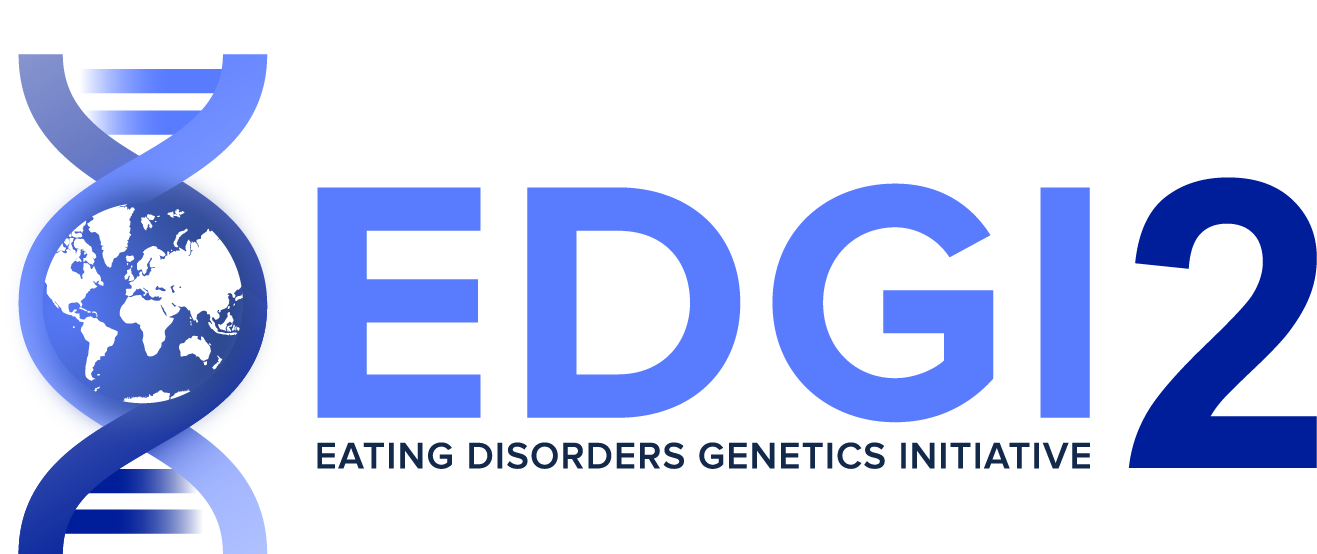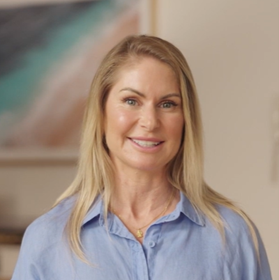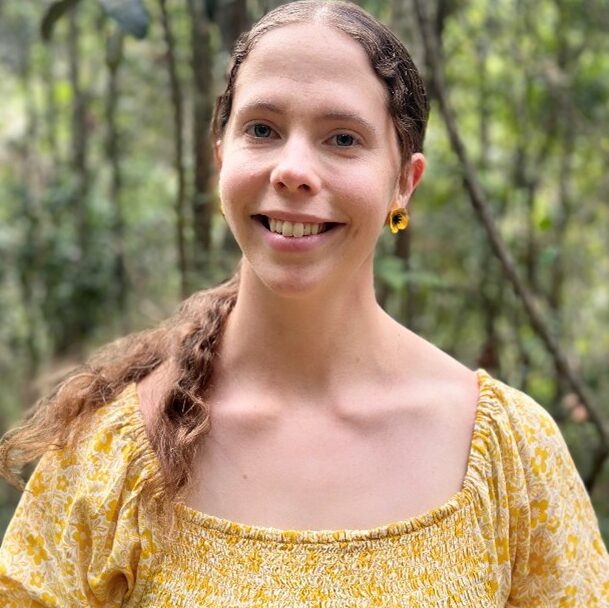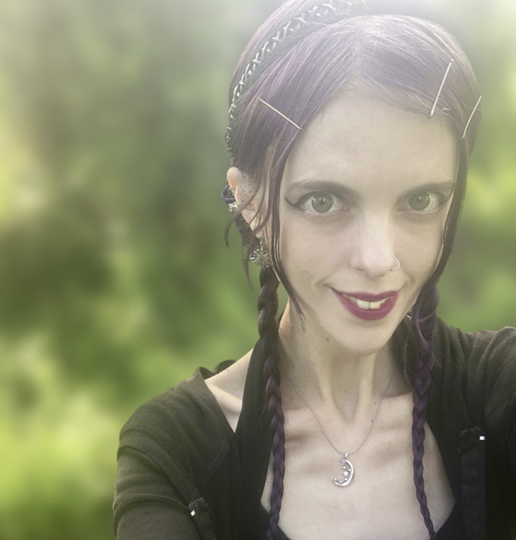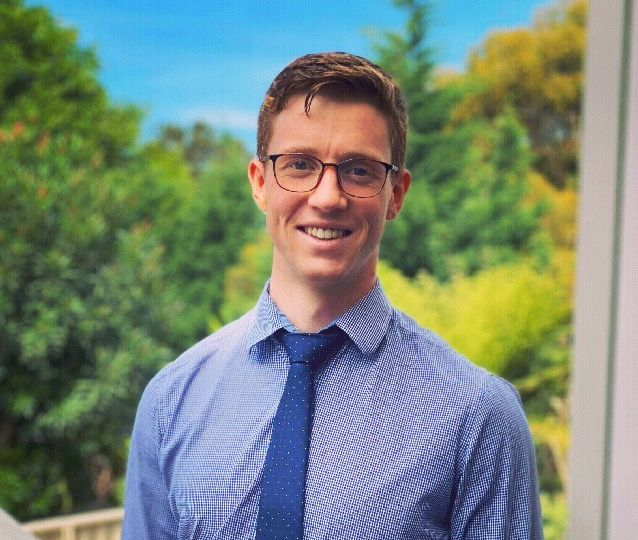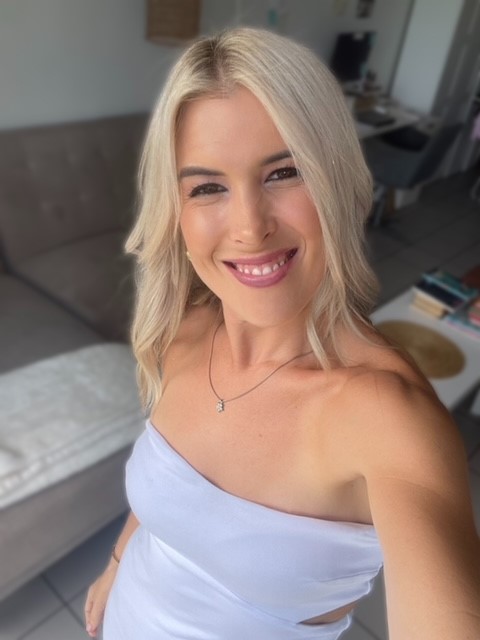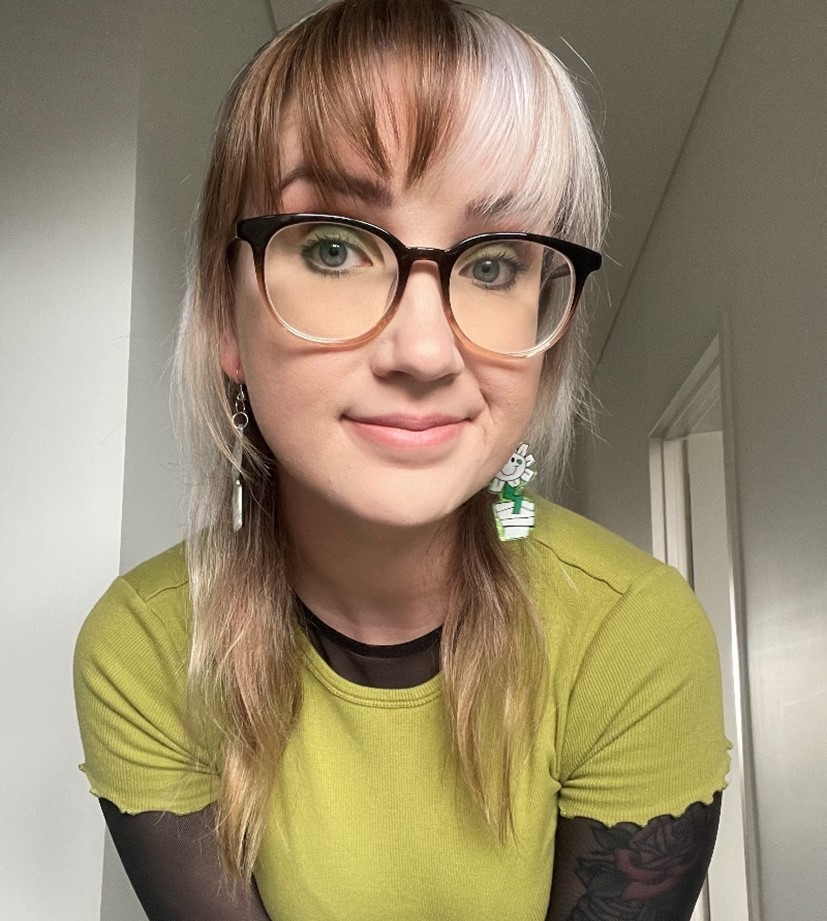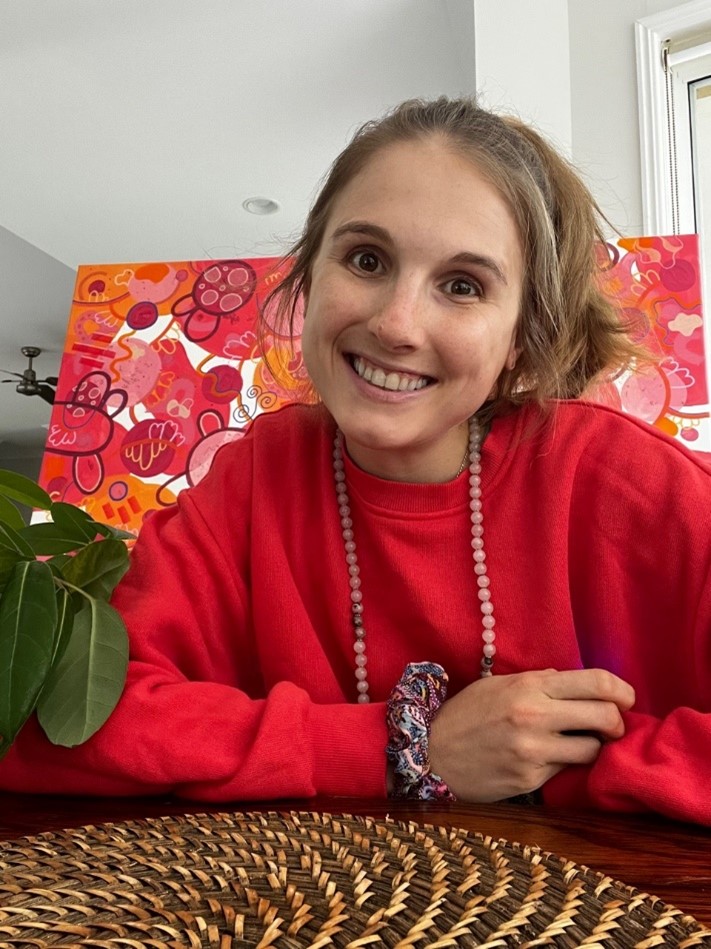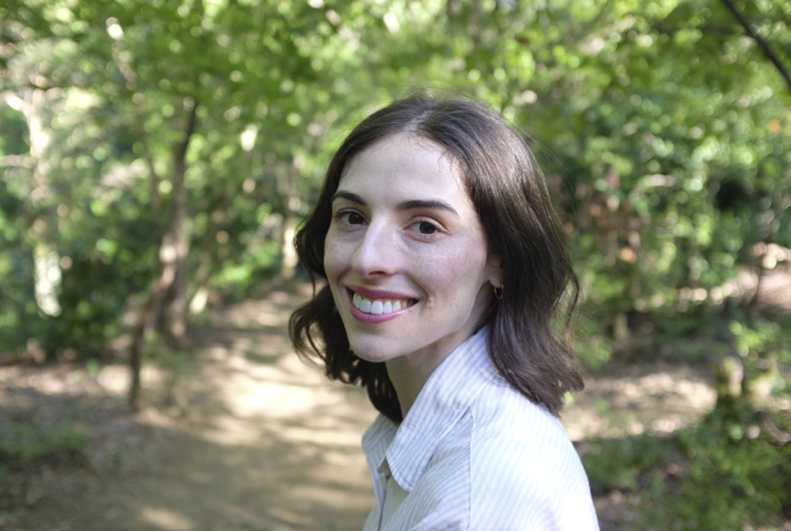PHD student and eating disorder lived experience consultant, Rosiel (they/them), 34, Sunshine Coast, endured anorexia nervosa for more than 25 years. They bring both academic insight and personal experience to their work.
Involving psychiatric and physical symptoms,1,2 anorexia nervosa is a serious and complex illness marked by extreme food restriction, and significant, and often dangerous, weight loss.3
Rosiel first showed signs of an eating disorder at just eight years of age. It took 10 years however, for Rosiel to receive a formal anorexia nervosa diagnosis, when they were rushed to hospital in a critical condition.
Although entering the youth mental health system at age 14, and being hospitalised for a range of complex challenges, including trauma, early psychosis, depression, and suicidality, Rosiel’s eating disorder went untreated, despite obvious signs.
During this period, they were repeatedly turned away by youth services due to the gravity of their mental illnesses. Rosiel’s mental health team struggled to grasp the full severity of their eating disorder. The lack of specialist care led to a dangerous decline in Rosiel’s condition, for which they blamed themselves for their illness.
While attending university, and living independently, Rosiel’s health deteriorated rapidly. Their anxiety had worsened, they often fainted, and lost vision for seconds or minutes at a time. They struggled with insomnia and felt constantly cold, yet remained unable to recognise or accept the severity of their condition.
University staff and Rosiel’s family members expressed grave concern for their well-being. As Rosiel began to show signs of organ failure, their family intervened and insisted on taking them to hospital, despite Rosiel’s deep fear of returning to hospital due to past traumatic hospitalisations and stigma. In hospital, a psychiatrist formally diagnosed Rosiel with anorexia nervosa.
Throughout Rosiel’s difficult journey, they have continued to show remarkable resilience. Over the recent Easter break, Rosiel was hospitalised again, underscoring the ongoing need for specialised care and treatment for many living with eating disorders.
Rosiel is now nearing the completion of a PhD on the neurobiology of anorexia, exploring the interplay between trauma, the gut microbiome, and cognition. Rosiel has come full circle from not recognising their eating disorder, to a researcher who works to understand the complexity of how an eating disorder can develop. Rosiel’s wellbeing is nurtured through creative passions – singing, poetry, walking in nature, and capturing the beauty of mushrooms and fungi through photography on Instagram (@fairy_satellite).
EDGI2 follows the ground-breaking advances made in the initial EDGI investigation and collaborative Anorexia Nervosa Genetics Initiative (ANGI), in which researchers, including the EDGI team, identified the first eight regions of the genome for anorexia nervosa that implicate both psychiatric and metabolic causes for the condition.
This was a total surprise and a finding that urgently needs replication and expansion to fully understand the pathways that lead to this debilitating condition – hence the need for a much larger sample size and participants who have experienced ALL eating disorders, which is the aim of the EDGI2.
Today, Rosiel is sharing their story to raise community awareness and understanding of living with anorexia nervosa and urge those who are currently affected to seek help and support. Rosiel further emphasises the importance of EDGI 2 for those who experience eating disorders.
This is Rosiel’s story.
Rosiel explains the lack of specialised care in their area significantly worsened their eating disorder and made consistent support near impossible.
“There were huge gaps in outpatient care – either short inpatient stays or nothing at all.
“I was turned away by psychologists and psychiatrists countless times, because my case was considered too severe to take on, due to my other mental health concerns, in addition to my eating disorder. Clinicians had no clear guidance about integrated care for me,” said Rosiel.
“It was traumatic being rejected over and over again. It felt isolating, like I was too much of a burden.”
“Eventually, I found a lifesaving psychologist who has worked me, but it took years,” Rosiel said.
Rosiel describes living with anorexia nervosa as deeply isolating and misunderstood.
“It’s an isolating nightmare most of the time. You’re trapped in a relentless vortex of darkness and self-destruction, and you don’t know how to get out.
“What’s absolutely soul-destroying is people think you’re not trying hard enough to recover, when every single day you’re fighting to break out of it and find freedom,” said Rosiel.
“Every day, you promise yourself tomorrow will be different. But then you need support – it’s very hard to have the tools to change on your own, because this illness is so complex. People give up on you, over and over, and it’s hard to hold onto hope. Inside you’re constantly begging, ‘Please, don’t give up on me.”
Anorexia nervosa has profoundly affected Rosiel’s life from a physical, mental, and social perspective.
“My heart has been affected, and I experience Postural Tachycardia Syndrome (POTS) [when your heart rate increases very quickly after getting up from sitting or lying down, often making you feel dizzy or lightheaded]4 constantly, even when rolling over or standing up.
“I have digestive issues that makes eating physically painful, and recovery even harder,” Rosiel said.
“People don’t realise the long-term damage of eating disorders like anorexia nervosa. Malnutrition can cause serious damage to someone at any weight, shape or size. A person’s body size is not an indicator of how seriously their health may be impacted by their eating disorder.
“Eating disorders are very dangerous, and affect all of your body’s systems. Over time, your entire gastrointestinal system can break down. Eating disorders are emotional and physical emergencies,” said Rosiel.
“A person with an eating disorder needs help and treatment. You can ‘feel fine’ for a while, but your body is not okay.”
Rosiel’s eating disorder has robbed them of many opportunities in life.
“It’s so hard to quantify, because an eating disorder affects every domain in your life.
“Anorexia nervosa has affected my career, independence and travel. I’m so physically debilitated a lot of the time, that I have to be in bed,” Rosiel said.
“I’ve faced a lot of stigma, and have lost so many job opportunities, and many places I could have travelled to. I’ve never learned to drive because I’m not medically well enough. And being unable to drive has led to further, missed opportunities.”
Rosiel explains the additional challenges they faced with maintaining relationships with family, friends, and romantic partners.
“I’ve lost so many friends along the way. I’m extremely isolated, and most of my connections are online or through work.
“Socialising is difficult because so much revolves around eating with others, and I don’t want to make anyone feel uncomfortable,” said Rosiel.
“The desperate need for human connection is devastating. I just don’t have those close relationships anymore.
“Romantic relationships can be difficult to navigate too. I’ve had to be careful about getting into relationships, because when you’re chronically ill and have a vulnerability around your eating, a person who is abusive or controlling can try to use that.
“I’ve had partners try to control my food, and use my insomnia and fatigue as a way to try and coerce and control my behaviour when I’m exhausted,” Rosiel said.
“Being mindful of my partner’s own relationships with their food and body image has been essential in relationships. I don’t want my eating to affect them, especially if they’re neurodivergent or struggling with their own gender dysphoria.
“I have very open discussions with a romantic partner or anyone I’ve dated about how I manage, and how we may need to manage things in order to keep us both well while I’m on my healing path. I don’t want to be a source of constant worry for a partner, but it’s difficult to avoid that in relationships. So, it becomes a conversation around “how are we going to manage this? What other support do we need?” said Rosiel.
“My family, especially my twin sister, is in constant anxiety. My eating disorder has deeply impacted her, and she worries so much about my physical health.
“I wish for all of us that I could recover, because it affects them too. Last week when I was in hospital again, they were at my side. It felt like that relentless cycle for us – here we go again – and steeling ourselves for how exhausted and emotionally raw we’d be by the end of my admission,” Rosiel said.
Rosiel advocates for better care for those living with eating disorders, drawing on their own experiences navigating a complex system.
“I do work with hospitals and health systems to improve care for people with eating disorders, particularly around trauma-informed approaches, neuro-affirmative care, and gender-affirming care.
“There’s still far to go, especially for people with longstanding illnesses. It’s hard to find your way through the system, especially when you don’t respond to treatment in a typical way,” Rosiel said.
“But treatment approaches are improving all the time. I know the care I’ve received over the past two years is very different than it was to the treatment I received 10 years ago. There’s a lot more understanding, and research informs these improvements.
“Research can help us understand more about eating disorders, and help us to personalise care (like tailoring treatment approaches to an individual’s specific needs) and develop new and innovative treatments,” said Rosiel.
Rosiel offers words of solidarity to those experiencing symptoms of an eating disorder, drawing from their own journey and the importance of connection.
“Don’t give up hope on healing. Research shows recovery is possible, even after decades. And remember, recovery looks different for everyone.
“When you have an eating disorder, you often have thoughts or a belief that other people deserve care, treatment and safety, or that other people are “sick enough” for treatment – but not you, you’re the exception,” Rosiel said.
“Those beliefs can develop over years of having unmet needs. You can start to truly believe that your needs never mattered, and you can start to view yourself as less than human in a way. But it would be like saying ‘everyone else deserves human rights, except one person’. Your needs and safety matter. You truly deserve safety, you deserve help and care, and you deserve freedom from your eating disorder.
“Every eating disorder is an emergency, and everyone who is living with one deserves support to heal from it and to be safe. I remind myself daily that no matter how long I’ve been ill, or what my journey has looked like, I still – and always – deserve that hope and freedom. We all do,” said Rosiel.
To volunteer for, or learn more about the Eating Disorders Genetics Initiative 2, head to edgi2.org.au or email edgi2@qimrb.edu.au.
Should you suspect you, or a loved one, may be living with an eating disorder, speak to your local healthcare practitioner without delay, or head to insideoutinstitute.org.au to complete their online screener and assessment, and to access more information and professional support.
Australian professional patient support services offering 24/7 helpline services include:
- Butterfly National Helpline: 1800 334 673
- Beyond Blue: 1300 22 4636
- LifeLine: 13 11 14
- Men’s Line Australia: 1300 78 99 78
- Kids Help Line: 1800 55 1800
ends#
For more information regarding this study please contact:
Kirsten Bruce or Sam Jacobs, VIVA! Communications
M 0401 717 566 | 0422 654 404
T 02 9968 3741 | 0434 799 839
E kirstenbruce@vivacommunications.com.au | sam@vivacommunications.com.au
References
1. American Psychiatric Association. Diagnostic and Statistical Manual of Mental Disorders. Fifth ed 2013.
2. Eating Disorders Victoria. Classifying Eating Disorders 2024 [Available from: https://eatingdisorders.org.au/eating-disorders/what-is-an-eating-disorder/classifying-eating-disorders/].
3. Walsh BT, Hagan KE, Lockwood C. A systematic review comparing atypical anorexia nervosa and anorexia nervosa. Int J Eat Disord. 2023;56(4):798-820.
4. Postural tachycardia syndrome (PoTS): National Health Service; 2023 [Available from: https://www.nhs.uk/conditions/postural-tachycardia-syndrome/].
